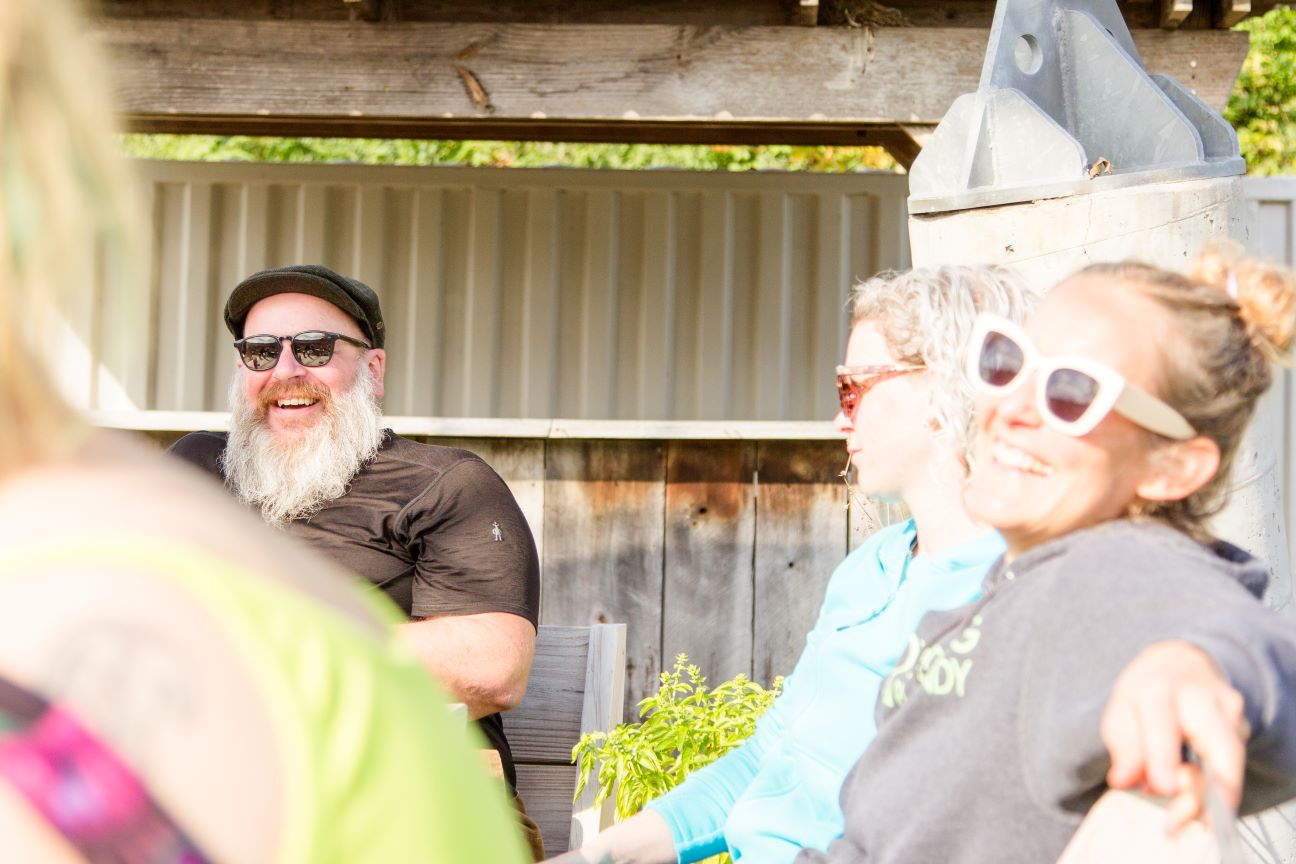Author Jonathan Safran Foer attributes this quote to his grandmother, in his recent non-fiction book, Eating Animals. His grandmother survived the Holocaust by running and hiding through the forests and countryside in Europe during WWII. He relates a conversation with her, in which she tells about being at the point where she did not know if she would make it another day. A Russian farmer sees her and offers her a piece of meat. Safran Foer comments to his grandmother that this farmer saved her life, but her response is that she did not eat the meat. It was pork, and she could not eat pork because it is not kosher. Astounded he replies, “But not even to save your life?” His grandmother’s response is simple and yet deeply profound, “If nothing matters, there is nothing to save.”
Safran Foer goes on to consider that food ethics are in part so complex because food and taste are inherently bound to our personal stories, our family histories, as well as social geography and cultural history. It is impossible to comment on food choice, food behaviors, and thus food ethics without it being, or at least seeming, personal. Therefore, in order not to offend, we often choose not to discuss food ethics. The IWFM walks the tight-rope of 1) serving a mission to provide and preserve consumer choices that are an alternative to the industrial food products (including fresh meats and produce) that make up 95-99% of the food supply, and 2) not lecturing or dictating about what you “should” or “should not” be eating, which might offend or alienate customers. Vendors selling value-added food products weigh similar considerations. They can provide a product that is less expensive with ingredients from industrial farms. Or, they have to charge more for a product made with ingredients purchased from local growers we can trust and whose farms we can visit to see for ourselves the farm practices that produce the food we eat. You have to let them know what you prefer.
It would seem these decisions would be straightforward and easy, but they are not. For example, say you were advising someone on the difference between chicken from IWFM farmers Schacht Farm or Simpson Family Farm, and HarvestlandÒPurely All-natural chicken, available at Marsh, Walmart and other retailers. Each provides chicken that is hormone, steroid and antibiotic free, cage-free, all-natural, and raised by family farmers. What’s the difference? Is there a difference? Is one a more ethical food choice than the other? Is it the place of a Farmers Market to make that call and prohibit the sale of products that contain ingredients from the industrial agriculture food chain, even if those products seem to meet the same criteria? With the advent of Genetically Modified and Genetically Engineered crops like soy and corn being grown across the country, and now Genetically Engineered Alfalfa deregulated by the USDA, is it even still possible to grow and eat food that is not altered by industrial agriculture practices?
It’s heavy stuff, and so we often want to turn away and just enjoy the pleasures of eating “good food.” At some point we have to ask, is that enough? If we keep turning away, how will we know whether there is still “good food” left to eat?
The IWFM vision is for a world in which we not only the have right, but we preserve the ability to eat good food. That is food that is grown, developed and adapted in partnership with the environment, rather than in competition to or mastery over it.
Our vision is for a world in which farmers are able to make a living wage at their work, are able to own their land and act as stewards of their farmland ecology. We believe farmers, not corporations, should own the animals, seeds and crops they raise and make decisions based on the welfare of those animals, seeds, crops and the people who will ultimately eat them, rather than on the welfare of a corporate bottom line.
Our vision is for a world in which we don’t have to “eat in fear,” or sacrifice the nutrient density of our family meals because it’s what “the system” enables us to afford. We believe in a future in which a conversation of food ethics can be a conversation of how food choices relate to religious or cultural beliefs and rituals, not whether the food we are eating is being ethically grown and produced. We believe in making the choices we have to make now, in order to support growers and producers who are moving our nation back to a reality in which all the food we eat is ethically grown, and into a new reality in which it is ethically produced.
This is not a simplistic vision, nor is it a simple task to achieve. Shopping at the farmers market is not action enough to make this vision reality. We must be willing to have frank, open and respectful conversations. We must be willing to set our personal stories aside, so that conversations are not emotionally driven. We must be willing to change our own choices, to speak up for truth, and to hear truth – even when it’s not what we want to hear.
These are very complicated issues. For example, consider that the rising demand for compostable cups and utensils, soy plastics for our cars, and bio-ethanol for fuel all mean more farmland being planted in commodity grains, enhance the argument for GMOs since these crops are not being eaten, and drive up the price of feed grain to the point that the small-scale farmers we wish to support may be driven out of the business. One market, one city, one state, one nation cannot change the course of the future alone, but if we aren’t willing to be the change we wish to see, then how can we expect it of anyone else?
Here is a final quote for Jonathan Safran Foer’s non-fiction book, Eating Animals: “The choice-obsessed modern West is probably more accommodating to individuals who choose to eat differently than any culture has ever been, but ironically, the utterly unselective omnivore – “I’m easy; I’ll eat anything” – can appear more socially sensitive than the individual who tries to eat in a way that is good for society. Food choices are determined by many factors, but reason (even consciousness) is not generally high on the list.”
~ Laura Henderson, founder & executive director of the IWFM


